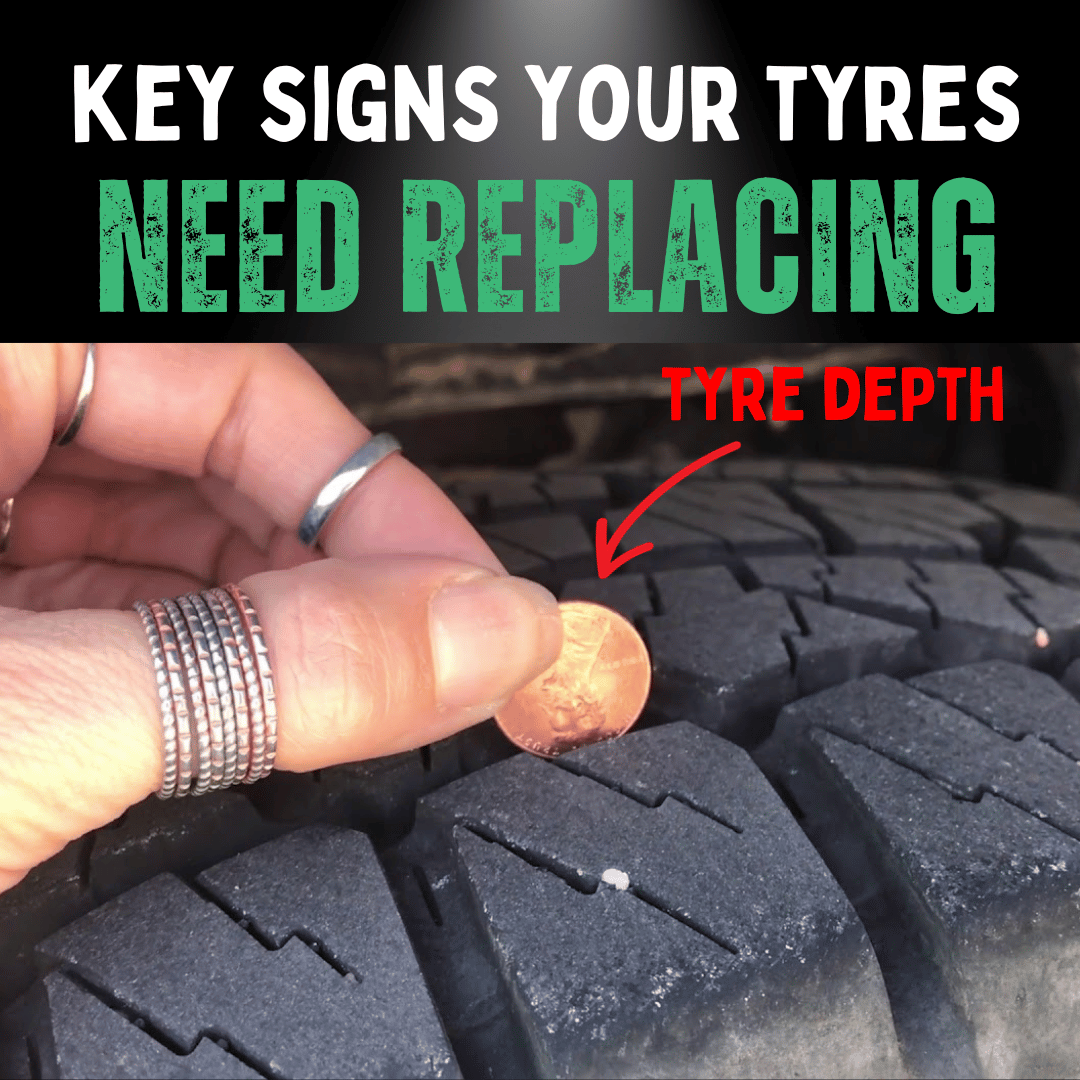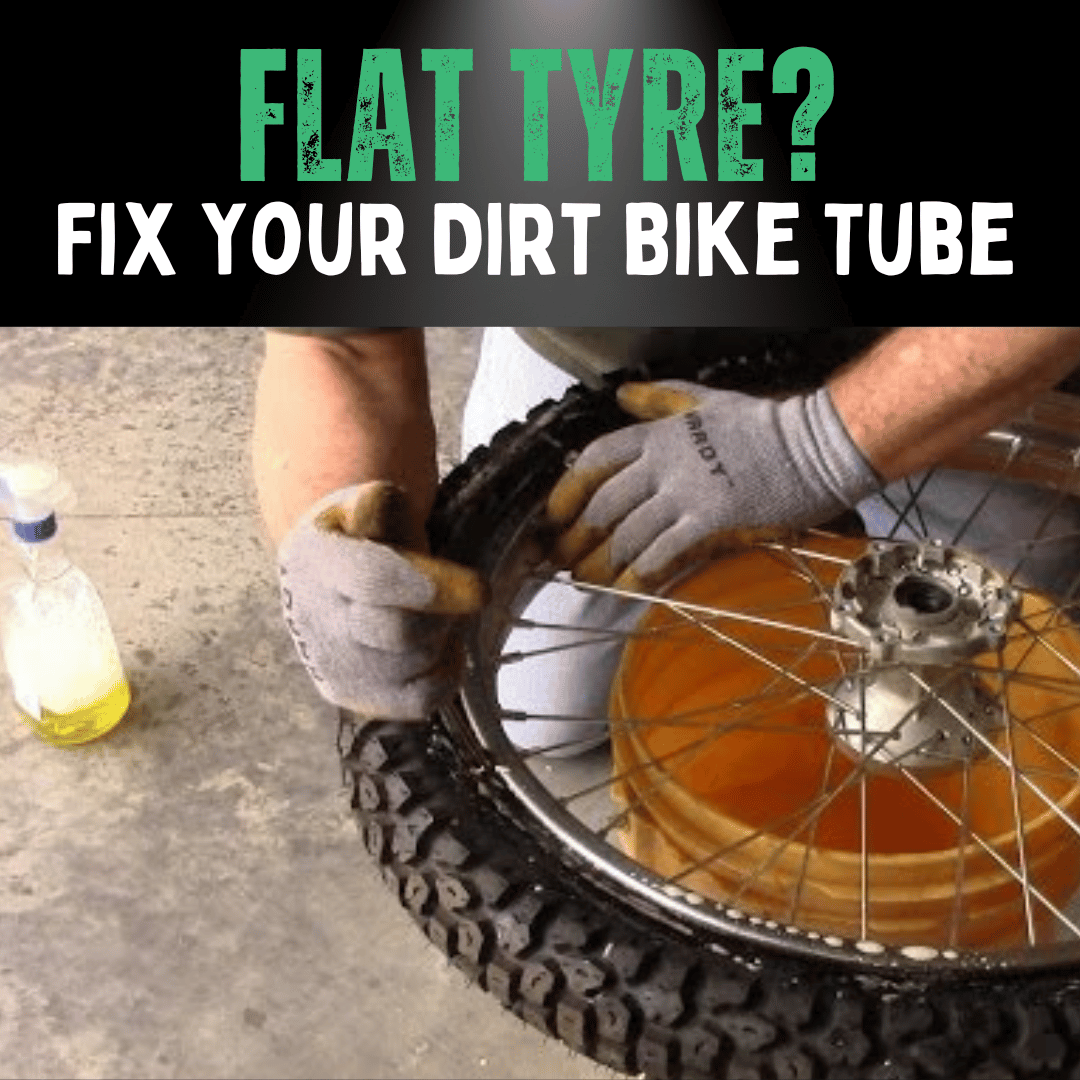Updated: 15.4.25
Motorbike riding is a thrilling experience—but to keep it safe, your tyres need to be in top shape.
They’re the only part of your bike that touches the ground, and their condition directly affects your performance, grip, and safety.
So, how often do you check yours?
Can you spot the early warning signs before things go wrong?
Imagine hitting a wet road on worn-out tyres or feeling your bike vibrate mid-ride due to a flat spot. Both are dangerous and entirely preventable.
Let’s explore the key signs that your motorbike tyres need replacing—before they put you at risk.
1. Low Tread Depth
Your tyres rely on tread to grip the road. Once tread depth hits the legal minimum—or the wear indicators inside the grooves—it's time to replace them.
This limit varies by country (e.g. 1mm in France, 1.6mm in Switzerland), so check your local laws. If you're unsure or see fading treads, play it safe and change them.
Related: How To Inspect Motorcycle Tyres
2. Tyre Damage or Defects
Cracks, bulges, dry rot, or punctures—any visible damage is a red flag.
These are signs your tyre’s structure may be compromised. Like worn shoes that let in water, these tyres are asking to be retired.
3. Irregular Wear Patterns
Uneven wear on one side? Feathering? Cupping? These may point to poor alignment, incorrect tyre pressure, or suspension issues. Address the cause—and replace the tyre if needed.
4. Ageing Tyres
Even if the tread looks good, rubber breaks down over time.
UV rays, temperature swings, and general wear make old tyres unsafe. Most manufacturers recommend inspecting tyres after five years and replacing them before the 10-year mark—regardless of use.
5. Mismatched Tyres
Mixing tyre types or brands—like wearing one boot and one flip-flop—throws off balance and handling. Always install tyres in matched pairs suited to your riding style and bike model.
6. Incorrect Tyre Pressure
Underinflated tyres wear on the sides; overinflated ones wear in the centre. Both reduce traction and lifespan.
Check your pressure regularly and compare it against the manufacturer’s recommended levels.
7. Misaligned Wheels
Like a wobbly trolley, poor wheel alignment pulls your bike off-centre and chews through tyres unevenly. Get alignment checked during regular servicing.
8. High Mileage
Tyres don’t last forever. Heavy use—especially at high speeds or with passengers—accelerates wear.
If you’ve put thousands of miles on your current set, it might be time for a fresh pair.
9. Punctures or Repairs
Not all punctures are repairable. Damage near sidewalls or deep into the carcass is usually terminal.
Related: Fix Your Dirt Bike Tube in Minutes
10. Crazing or Surface Cracks
Small cracks along the surface or sidewalls indicate ageing rubber, often caused by UV exposure or improper storage. This weakens the tyre and requires replacement.
11. Flat Spots
Long periods of storage or emergency stops can cause uneven wear, known as flat spots. These affect grip and cause vibration at higher speeds.
Why Compatible Tyres Matter
Using tyres designed specifically for your bike model ensures:
- Peak performance — Correct handling, traction, and response.
- Improved safety — Better grip during corners, wet roads, and emergency stops.
- Fuel efficiency — Reduced rolling resistance.
- Extended tyre life — Even wear and fewer replacements.
- Smoother ride — Comfort and stability over various terrains.
Road Conditions & Tyre Wear
Rough surfaces, potholes, and gravel speed up tyre degradation. Soft compounds and bald tyres wear quicker on aggressive terrain. City roads are smoother but can cause cupping or uneven wear.
Tyre Markings Explained
The numbers and letters on the tyre sidewall reveal its:
- Size
- Load index
- Speed rating
- Construction type
Understanding these helps you choose a compatible replacement and maintain performance.
Your Riding Style Affects Tyre Life
Frequent hard braking, sharp acceleration, and heavy loads (like a passenger or luggage) cause faster wear. Being aware of how you ride can help extend your tyres’ lifespan.
Conclusion
If your tyres showed even a few of these signs, it's time to act. Replacing them isn’t just about better rides—it’s about safer ones.
Don’t wait for a blowout or close call. Invest in fresh rubber and ride with confidence!










Share:
Why Are Dirt Bikes So Loud? Tackling the Loud Mystery Head-On
10 CRUCIAL Tips on How to Be Seen on a Motorcycle